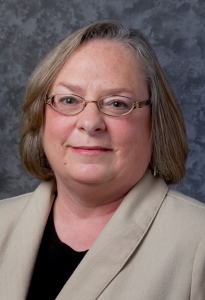Window on the West
Opinion column
by Mary Rupert
A rare instance of a split in the local legislative delegation did not gain very much attention outside of Wyandotte County. Senate Bill 338, the abandoned housing bill, was opposed by some representatives in urban areas throughout Kansas, including some members of minority groups.
The abandoned housing bill, passed by both the House and Senate this year, was sent to the governor on April 1. The bill makes it easier for local governments to take abandoned property, and outlines a process for turning the property over to a nonprofit agency for rehabilitation.
Back by State Rep. Stan Frownfelter, D-37th Dist., and the Unified Government, the bill was opposed by State Sen. David Haley, D-4th Dist. In the final House vote, many urban representatives in Kansas joined Haley in opposing the bill.
The bill is an attempt to solve a problem of homes remaining abandoned for years before action is taken. It expedites the process of taking a home away from the owner if the property is unoccupied for a year and is blighted – adding a new definition to current laws about homes that may be taken away. After rehabbing a home, a nonprofit organization could then take quiet title to the property, with the property owner receiving nothing.
The UG and various neighborhood groups understandably are frustrated with the long process of getting these homes repaired and back onto the tax rolls, or of tearing them down and rebuilding on the property. Who doesn’t want to see blighted areas improved? But large projects usually take a lot of time in order to do them correctly.
Like anything new, there are no guarantees that this bill will act in the way that its sponsors want. There is some vagueness about the definitions of blight that could lead to misuse. Will blight have the same definition in a neighborhood of $200,000 homes as it will in a neighborhood of $50,000 homes? Will properties be declared blighted when only a small amount of work is needed?
The bill had been introduced by Rep. Frownfelter for years, but this past year was different. Various groups, including Realtors, local government associations and conservatives, were asked to review the bill and there were changes made from the previous years’ versions.
But it appears there was one group left out of this approval process. When you look at the areas most affected by this bill, it often would be poor minority areas of cities. Opponents of the bill said it would negatively affect poor areas of cities that contain higher numbers of minorities.
During debate on the bill, one representative vocalized what many have wondered – why are communities not trying more positive ways to help homeowners who have blighted property, such as organizing volunteer groups to go out, clean them up and leave the property with the owners, rather than negative approach of seizing the property?
No doubt, there are already efforts along this line underway in many communities, but much is lacking when it comes to vacant homes and out-of-town owners.
After debate on the bill in the House on March 23, several representatives signed on to this statement (as recorded in the House Journal): “SB 338 circumvents our current eminent domain statutes by redefining ‘abandoned property’ and by allowing our local governments to expeditiously confiscate, seize or destroy law abiding citizens’ private property without compensation, adequate notice, and a legal property title. This is an egregious overreach that deprives some citizens of their private property rights without sufficient due process and it will cause irreparable harm to our most vulnerable citizens that do not have the resources to protect their property.”
Signing that statement were Reps. Gail Finney, Broderick Henderson, Roderick Houston, Ben Scott, Valdenia Winn, John Carmichael, Kasha Kelley, Bill Sutton, Jerry Lunn, and Charles Macheers.
One can only hope, if the bill is signed into law, that an effort is made by individuals to help the owners of inner-city properties before the new law goes into effect in July.
To reach Mary Rupert, editor, email [email protected].
For an earlier story on this topic, visit https://wyandotteonline.com/two-wyandotte-county-legislators-take-opposite-sides-on-abandoned-housing-bill/.

